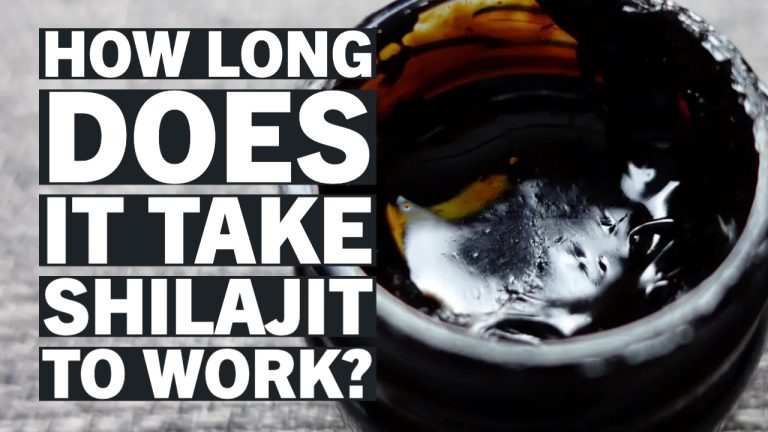Do Sports Drinks Really Work? A Casual Look into Their Effectiveness
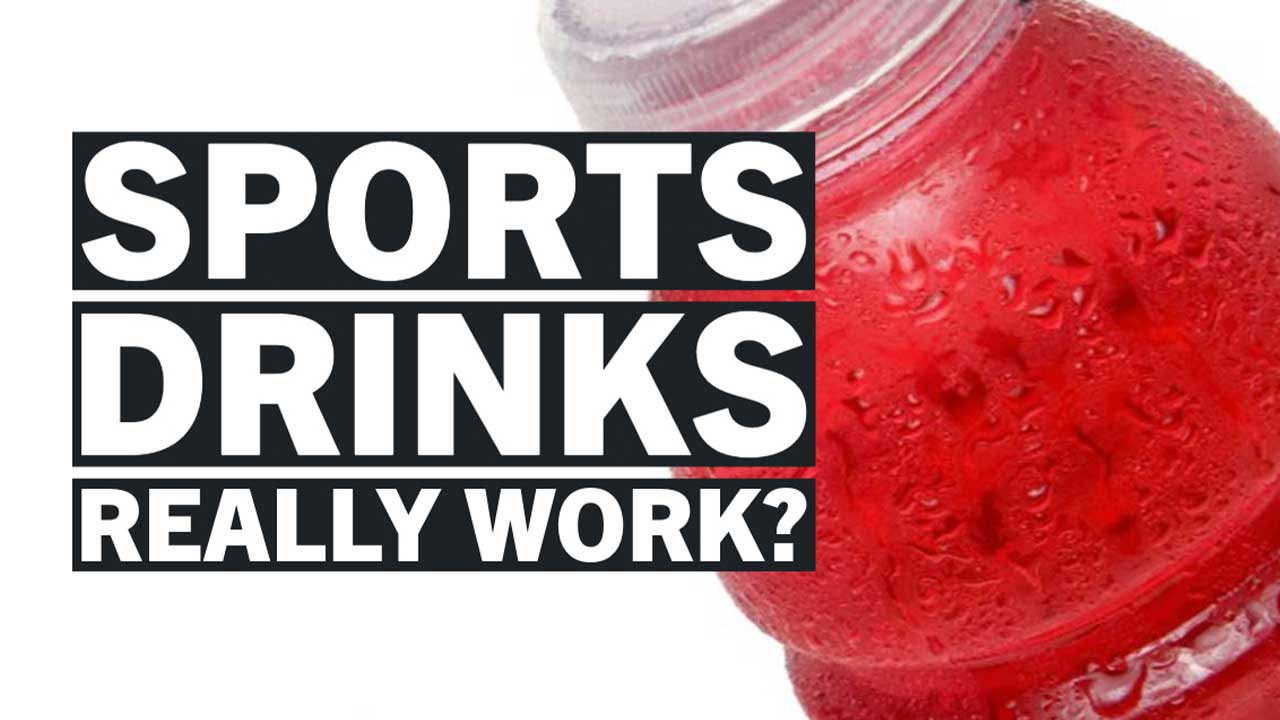
ListedFit is reader-supported. When you buy through links on our site, we may earn a small commission.
Sports drinks have become increasingly popular among athletes and fitness enthusiasts, claiming to improve physical performance and replenish electrolytes lost during intense activity.
Marketed with the promise of enhancing your workout, these beverages primarily consist of carbohydrates and electrolytes, aimed at helping you refuel and recover. With so many options on the market, the question arises: do sports drinks really work?
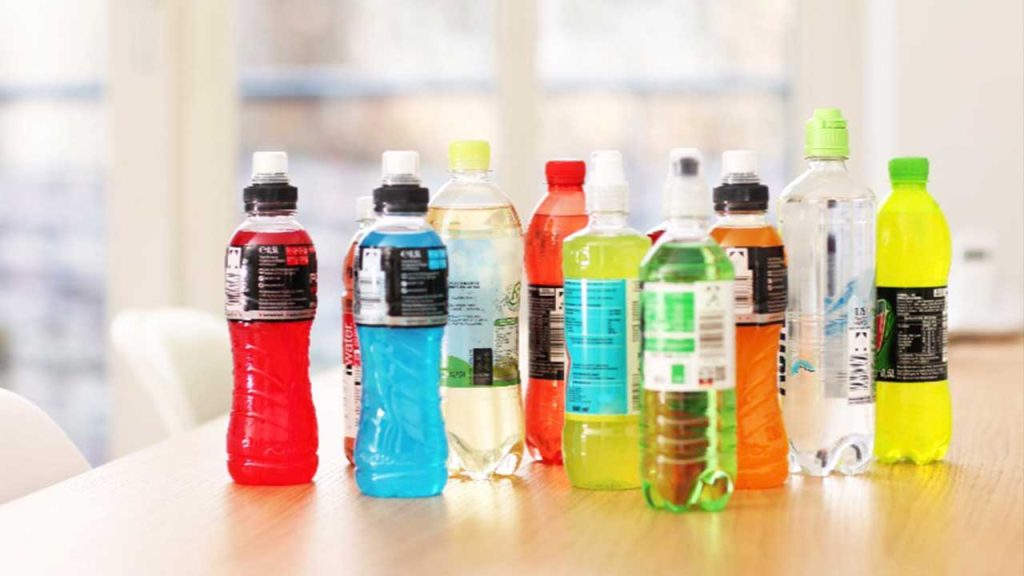
Quick Summary
In order to evaluate the effectiveness of sports drinks, it is important to first understand their composition and intended purpose.
A typical sports drink contains essential electrolytes, such as sodium and potassium, alongside varying sources of carbohydrates.
These ingredients are designed to support your body during prolonged exercise, providing both hydration and energy.
While sports drinks can be beneficial for certain situations, it is crucial to bear in mind that their advantages may not apply to everyone or during every type of exercise.
Key Takeaways
- Sports drinks are formulated to replenish electrolytes and provide energy during intense activities
- Their effectiveness depends on the individual and the nature of the exercise
- It’s essential to analyse your own needs and weigh the benefits against potential health risks when considering sports drinks
In This Article…
The Basics: What Are Sports Drinks Made of?
Sports drinks are designed to help you maintain hydration and replenish essential nutrients during physical activities.
Let’s dive into what sports drinks are actually made of, so you can better understand how they work.
- First up, water is the main ingredient in sports drinks. It’s no surprise, as staying hydrated is crucial for maintaining your performance and preventing issues like muscle cramps or fatigue.
- Next, sports drinks contain a mix of carbohydrates in the form of sugars like glucose and sucrose. These carbs usually make up about 3-7% of the drink and provide a quick source of energy to keep you going. The blend of sugars ensures that your body can efficiently absorb them without overloading any specific transporters in your gut.
- Another vital component in a sports drink is electrolytes. Electrolytes are essential minerals, such as sodium, potassium, and magnesium, that help regulate fluid balance in your body. When you sweat during exercise, you lose electrolytes, which can lead to an imbalance and negatively impact your performance.
Here’s a quick breakdown of the main electrolytes found in sports drinks:
- Sodium: Plays a crucial role in maintaining fluid balance and helps prevent dehydration.
- Potassium: Supports muscle function and helps maintain proper electrolyte balance.
- Magnesium: Supports muscle function, is vital for energy production, and aids in the recovery process.
In addition to water, carbs, and electrolytes, sports drinks may also contain small amounts of other ingredients, like salts, depending on the brand and formulation.
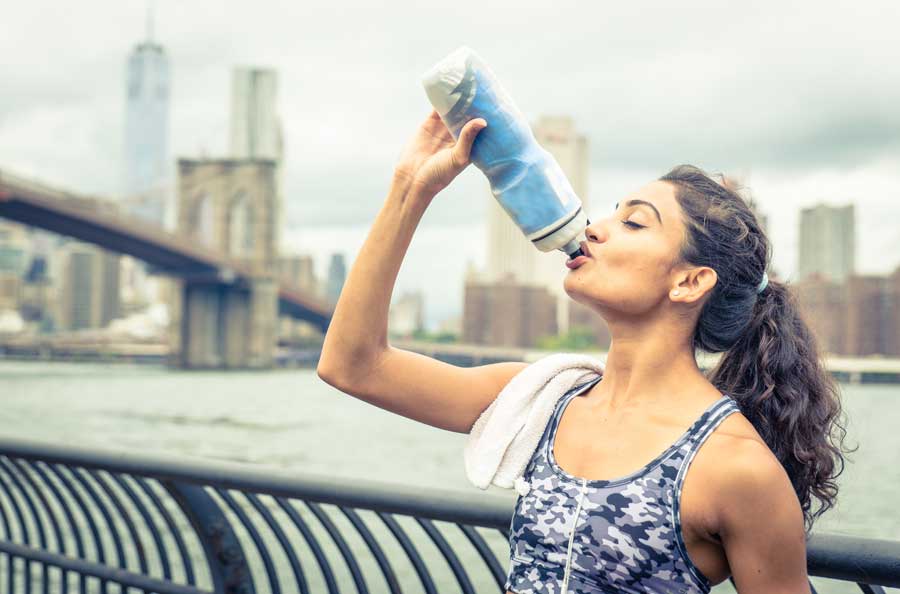
The Science Behind Energy and Hydration
When it comes to sports drinks, you might be curious about how they help boost energy and hydration. Well, let’s have a look at the science behind it.
Sports drinks are designed to replenish the essential substances that your body loses during intensive exercise. These substances include glucose, fluids, and electrolytes – the latter being minerals like sodium, potassium, magnesium, and calcium. Electrolytes play a crucial role in balancing your body’s fluid levels and maintaining your overall performance.
As you exercise, your body burns carbohydrates, primarily in the form of glycogen stored in your muscles. Glycogen is the main fuel source for moderate to high-intensity workouts. When your glycogen stores become depleted, you’ll likely experience a decrease in energy and performance.
Hydration is crucial during exercise, especially in hot weather or during prolonged activities. Drinking water is essential, but it might not be enough to replenish the electrolytes that you lose through sweat. Enter sports drinks – they can help maintain optimal hydration levels and provide the necessary energy by including carbohydrates in the form of sugars.
Incorporating sports drinks into your exercise routine can help maintain your energy levels and avoid the dreaded “hitting the wall” feeling. By consuming carbs during exercise, you’re giving your muscles the much-needed fuel to prolong their performance.
So, the next time you’re gearing up for a workout, consider grabbing a sports drink to keep your energy levels up and ensure adequate hydration. Just remember, moderation is key – too many sugary drinks can lead to unwanted weight gain and other health issues. Stick to water for low-intensity activities, and save the sports drinks for those sweatier, more demanding sessions.
How Much Gatorade Is Safe to Drink Per Day?
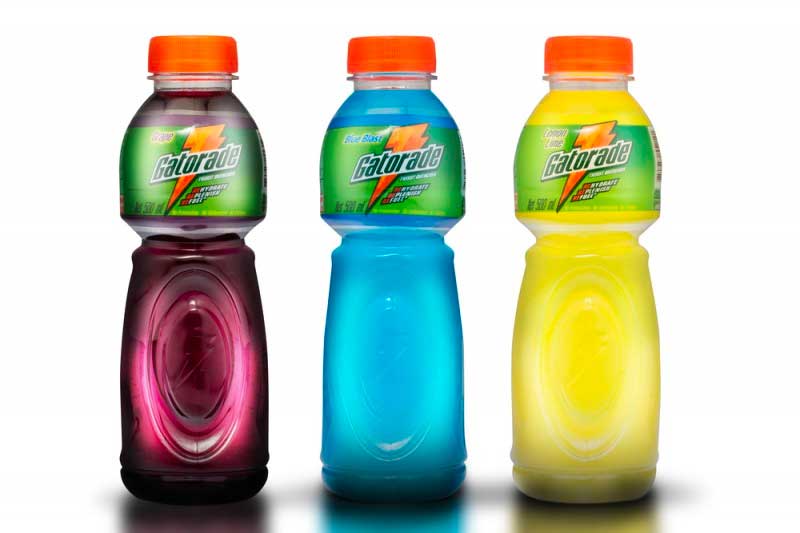
On average, consuming 32 to 64 ounces (946 to 1892 ml) of Gatorade per day is considered safe for most people. However, it’s essential to tailor your intake based on your specific requirements and activity levels.
What Are The Side Effects of Drinking Gatorade Everyday?
Drinking Gatorade every day can have some side effects if you consume it excessively or if your regular diet lacks balance. Some potential side effects include:
- Weight gain: Since Gatorade contains sugar, excessive consumption might lead to weight gain if not balanced with regular exercise.
- Tooth decay: Gatorade’s sugar content can contribute to tooth decay if you don’t maintain proper dental hygiene.
- Increased risk of diabetes: Overconsumption of sugar-sweetened beverages like Gatorade can increase the risk of type 2 diabetes.
Remember, moderation is key to avoiding these side effects.
Does Gatorade Hydrate You Better Than Water?
Gatorade contains electrolytes, such as sodium, potassium, and chloride, which help regulate your body’s fluid balance.
These electrolytes, combined with the carbohydrates in Gatorade, can help athletes refuel and rehydrate more effectively than water, especially after strenuous activities where you lose a significant amount of fluid and electrolytes through sweat.
But for most people with low to moderate activity levels, water is often sufficient for hydration. Gatorade is most beneficial when you need an extra boost to replenish lost fluids and electrolytes during intense or prolonged exercise.
Sports Drinks Vs Natural Hydration Methods
Tap Water
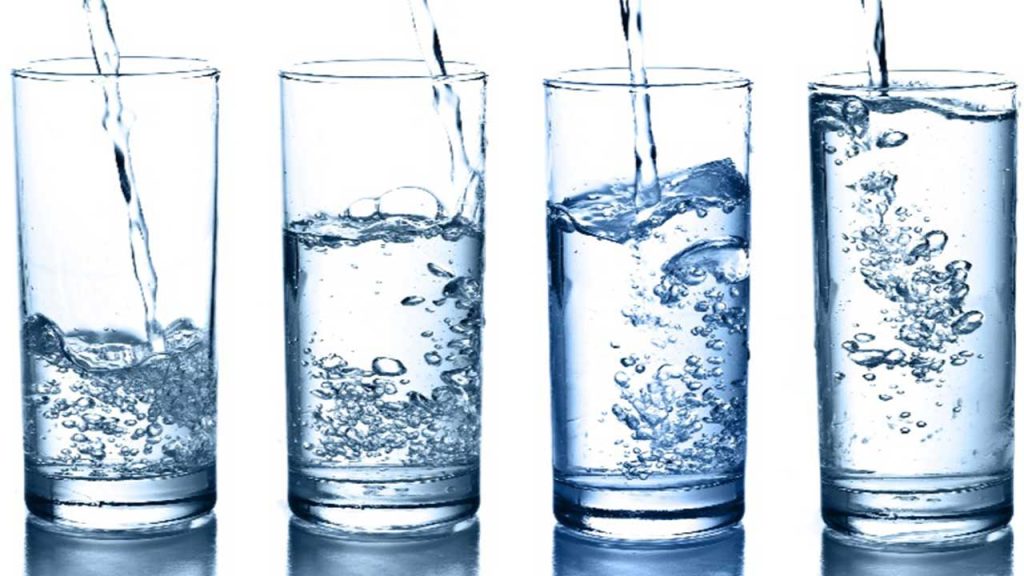
When it comes to hydration, normal tap water is often good enough. It’s easily accessible, cost-effective, and contains no added sugars or artificial ingredients.
Drinking 8 ounces of water after exercise and an additional 16 to 24 ounces of fluid for every 1 pound of body weight lost during exercise is a sound guideline to follow.
Fruit And Vegetables
Another natural way to stay hydrated is by consuming fruit and vegetables. They are packed with water, vitamins, and minerals that aid in replenishing lost fluids and electrolytes. For instance, watermelon, cucumber, oranges, and strawberries have high water content and provide essential nutrients. Make sure you incorporate these into your diet, especially during periods of physical activity or hot weather.
Oral Rehydration Solutions
In cases of significant dehydration or intense workouts, oral rehydration solutions can be a helpful alternative.
These solutions contain a mix of water, electrolytes, and carbohydrates to help replenish what your body loses during exercise. However, they shouldn’t replace sports drinks entirely, as their primary purpose is for rehydration and not providing energy during workouts.
Sports Drinks and Athletic Performance
Endurance Athletes
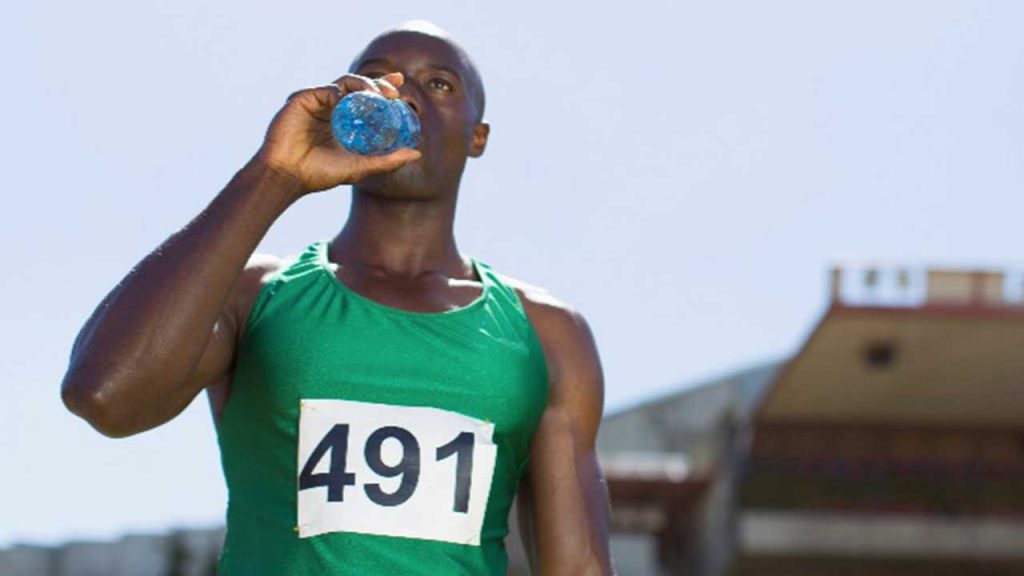
When you’re an endurance athlete, maintaining your energy levels and hydration is crucial. Sports drinks can be beneficial in enhancing your stamina and performance during high-intensity exercises lasting longer than 60-90 minutes. These drinks contain sugars that provide additional fuel for your working muscles, helping you maintain blood sugar levels and increase endurance.
During prolonged physical activities, such as marathons or cycling races, you can lose electrolytes through sweat. Sports drinks are formulated to replenish lost electrolytes quickly, rebalancing your system and supporting overall physical performance.
Gym Training
For gym enthusiasts, sports drinks might not be as essential. If your gym sessions typically last less than 60 minutes, water is usually sufficient for hydration. However, if your workout is particularly intense or lasts longer than 90 minutes, a sports drink can be helpful to maintain energy levels and electrolyte balance.
Keep in mind that sports drinks contain sodium, which can be around 10% of the daily recommended intake. If you decide to use sports drinks during your gym training, be mindful of your overall sodium consumption to stay within healthy limits.
Sports drinks can play a role in supporting your athletic performance, depending on the type, intensity, and duration of your physical activities. Always listen to your body and stay hydrated to achieve optimal results in your athletic pursuits.
How Effective Are the Big Names?
As you explore the world of sports drinks, you’re likely to come across a few big names: Gatorade, Powerade, and All Sport. Each of these popular beverages claims to benefit your performance during physical activities. But how well do they actually work?
- Gatorade, one of the most well-known sports drinks, primarily consists of carbohydrates and electrolytes. It aims to replenish what you lose during intense exercise, keeping you energised and hydrated.
Many athletes swear by this drink, and there is some evidence showing that it can be beneficial for performance, particularly during prolonged activities.
- Powerade, another big player in the sports drink market, also focuses on providing carbohydrates and electrolytes to help you refuel during exercise. It’s similar to Gatorade in terms of its role in enhancing performance.
While specific research comparing the effectiveness of Gatorade versus Powerade may be limited, both drinks seem to serve a similar purpose and have their own dedicated fan base.
- All Sport, though less recognized compared to Gatorade and Powerade, is another beverage aimed at improving your exercise experience. It also contains carbohydrates, electrolytes, and vitamins, claiming to support hydration and energy levels during physical activities.
However, it’s important to keep in mind that scientific research specifically addressing All Sport may be harder to come by.
When considering any sports drink, it’s essential to give thought to your individual needs and preferences. Factors like taste, sugar content, and the intensity of your workout all play a part in determining which beverage might be the best fit for you. Additionally, always remember that moderation is key.
While sports drinks may have their benefits, overconsumption can lead to excessive sugar intake. So, don’t forget the importance of plain water in your hydration routine, especially during less intense activities.
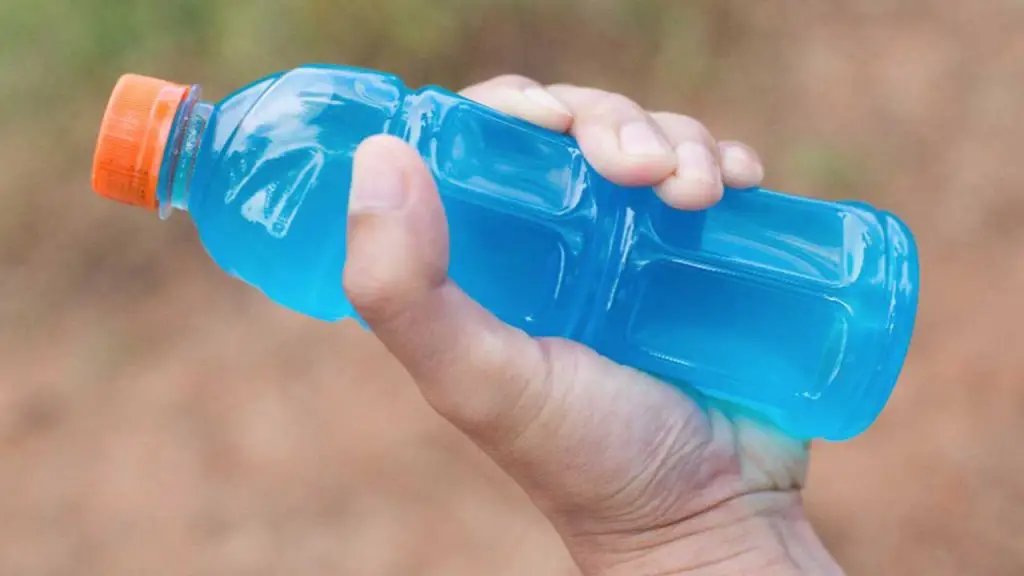
Potential Health Risks and Side Effects
While sports drinks may provide some benefits, such as hydration and electrolyte replacement, it’s important to be aware of the potential health risks and side effects.
Firstly, consuming too many sports drinks without engaging in vigorous exercise can increase the risk of obesity and other health problems, such as type 2 diabetes, cardiovascular disease, and gout1. This is because these drinks often contain high amounts of sugar and calories, which can easily add up if you’re not careful.
In addition, some sports drinks contain stimulants, such as caffeine, which can cause side effects like sleep problems, nausea, vomiting, and high blood pressure2. These stimulants might make you feel great during a workout, but overconsumption can lead to unpleasant consequences.
Moreover, the high sugar content in some sports drinks can also contribute to an increased risk of dental caries1. Make sure to maintain good oral hygiene and consider choosing low-sugar alternatives to help protect your teeth.
Dehydration can be a concern, especially if you are solely relying on sports drinks for hydration. Although they can help replace some lost fluids, water should still be your primary source of hydration to avoid potential side effects like headaches, muscle cramps, and fatigue.
Lastly, it’s worth noting that individuals might react differently to specific ingredients found in sports drinks. Some people may experience diarrhoea, heart palpitations, or even allergic reactions3. If you notice any unusual symptoms after consuming sports drinks, it might be best to opt for water or seek alternative hydration sources.
In summary, while sports drinks can offer some benefits, it’s crucial to be mindful of potential health risks and side effects. Always listen to your body and remember that moderation is key.
Footnotes
- https://www.hsph.harvard.edu/nutritionsource/sports-drinks/ ↩ ↩2
- https://www.google.com/search?q=deal+with+sports+drinks%3F&oq=deal+with+sports+drinks%3F&aqs=chrome.0.0i512l2j0i22i30l8.2852j1j7&sourceid=chrome&ie=UTF-8 ↩
- https://www.harvardhealth.harvard.edu/ ↩
The Tricks, Myths and Marketing Strategies of Sports Drinks Companies
You might have noticed a lot of buzz around sports drinks. These colourful bottles promise to quench your thirst, replenish electrolytes, and even improve your performance. But is it all just clever marketing and myths? Let’s look at the tactics used by these companies to push their products.
First off, sports drinks companies are experts in promoting the idea that their drinks are essential for peak athletic performance. You’ll often see adverts with famous athletes chugging down a bottle, creating an association between the product and success in the world of sports. You might think you’ll perform like a professional if you drink the same beverages they do.
Another tactic used by sports drinks companies is creating the impression that plain water just isn’t enough…
They claim their drinks offer an optimal mix of electrolytes and sugar to keep you hydrated and energised. However, unless you’re participating in intense and prolonged exercise, water is usually sufficient for rehydration.
Let’s chat about the sodium factor. Some clever marketing strategies suggest that the sodium content in sports drinks makes you thirstier. The idea is that it encourages you to consume more of the product compared to just drinking water. However, the actual benefits of sodium in sports drinks remain debatable.
As for the rage aspect, sports drinks companies often use intense, high-energy, and “cool” imagery in their marketing campaigns.
They target young consumers and link their products to youth culture, power, and health. This clever marketing fuels both the hype and the rage in the sports world and social media.
One thing you might not be aware of is the caffeine content in some sports drinks. While it’s true that caffeine can improve athletic performance in specific contexts, not all sports drinks contain caffeine. And if they do, the levels are carefully measured and usually safe, as per EFSA guidelines.
Sports drink companies are pros at creating and spreading myths around their products. They use effective marketing strategies to sell the idea that their drinks are necessary for top athletic performance.
Next time you see these flashy advertisements, remember that it’s all about hype and marketing – and plain old water might do the trick for you.
Frequently Asked Questions
Are sports drinks actually good for you?
Sports drinks can be beneficial in specific situations, such as during or after intense physical activity when you need to replace lost electrolytes and rehydrate quickly.
However, they do contain sugars and calories, and when consumed excessively or when not exercising, they might contribute to weight gain and other health issues.
Do sports drinks truly hydrate you?
Yes, sports drinks contain water and can help with hydration.
They can be particularly useful during extended or high-intensity workouts, as they also include electrolytes and carbohydrates, which can aid in maintaining energy levels and preventing dehydration.
Do sports drinks really restore electrolytes?
Sports drinks contain electrolytes like sodium, potassium, and magnesium, which are lost through sweat during exercise.
By consuming a sports drink, you can help restore these lost electrolytes and maintain a proper electrolyte balance, crucial for optimal muscle and nerve function.
Does Powerade go bad after opening?
Powerade can spoil after opening if not properly stored and consumed within a specific time frame.
Once opened, it should be refrigerated and consumed within 2-3 days to maintain its quality and avoid spoilage.
Always trust your senses and check for any off smells, tastes or changes in appearance before consuming.
What do sports drinks actually do?
Sports drinks are designed to help athletes and active people maintain hydration, energy levels, and electrolyte balance during and after physical activities.
They contain water, electrolytes, and carbohydrates, which work together to achieve these goals.
How do sports drinks function?
The main function of sports drinks is to replace fluids and electrolytes lost through sweat and provide a source of energy in the form of carbohydrates.
These drinks contain water for hydration, electrolytes for maintaining proper muscle and nerve function, and carbs to refuel your body and supply energy.
When is a sports drink better than water?
A sports drink can be more beneficial than water when you are engaged in prolonged or intense physical activities.
The added electrolytes and carbohydrates help replace what your body has lost during exercise, and they can help improve performance and recovery.
For everyday hydration needs or light activity, water is usually sufficient and a better option due to the absence of added sugars and calories.
Author
-
Stuart Patrick is a health and fitness lifestyle journalist who writes for ListedFit.com.
“I've spent a lot of time trying to get in shape and change my body and I realised there are so many untruths in the health and fitness industry that can slow down or stop your progress, so I share my knowledge and experience to help others to cut through the BS.”
Latest entries
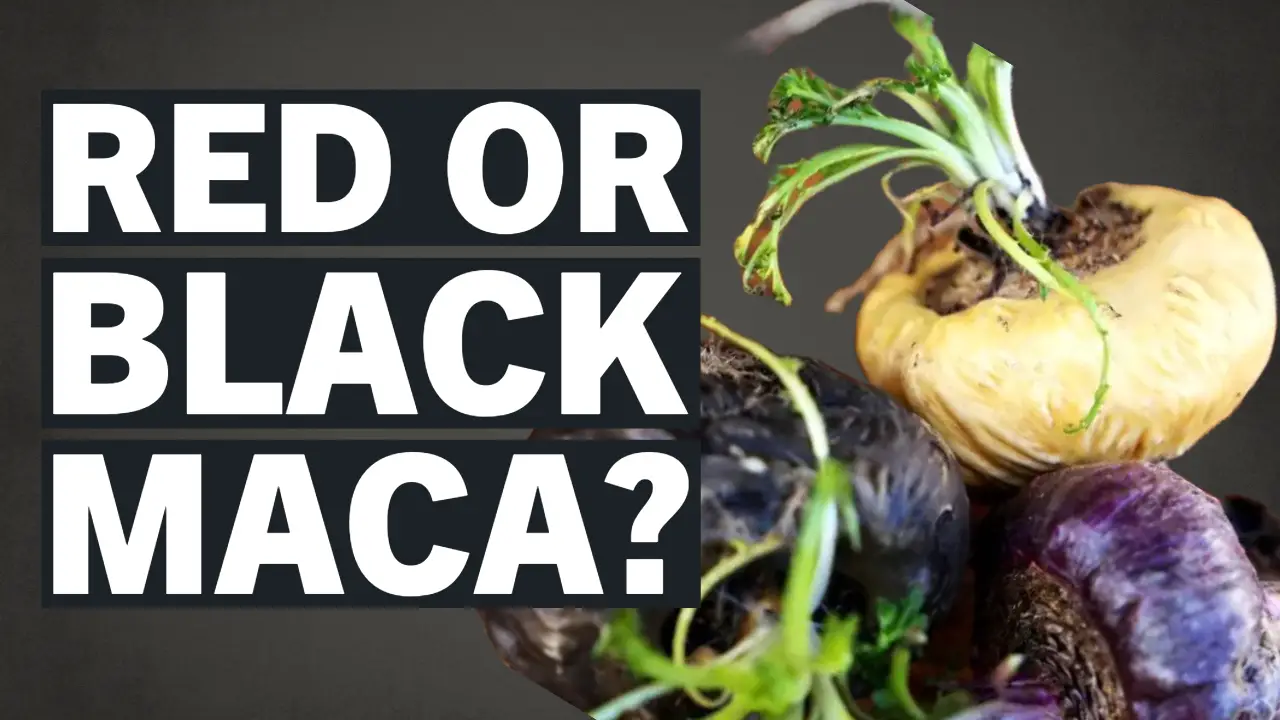 MacaMarch 17, 2024Which is Better: Black or Red Maca? Comparing Benefits and Uses
MacaMarch 17, 2024Which is Better: Black or Red Maca? Comparing Benefits and Uses FitnessFebruary 18, 2024Join the Discount Club Today!
FitnessFebruary 18, 2024Join the Discount Club Today!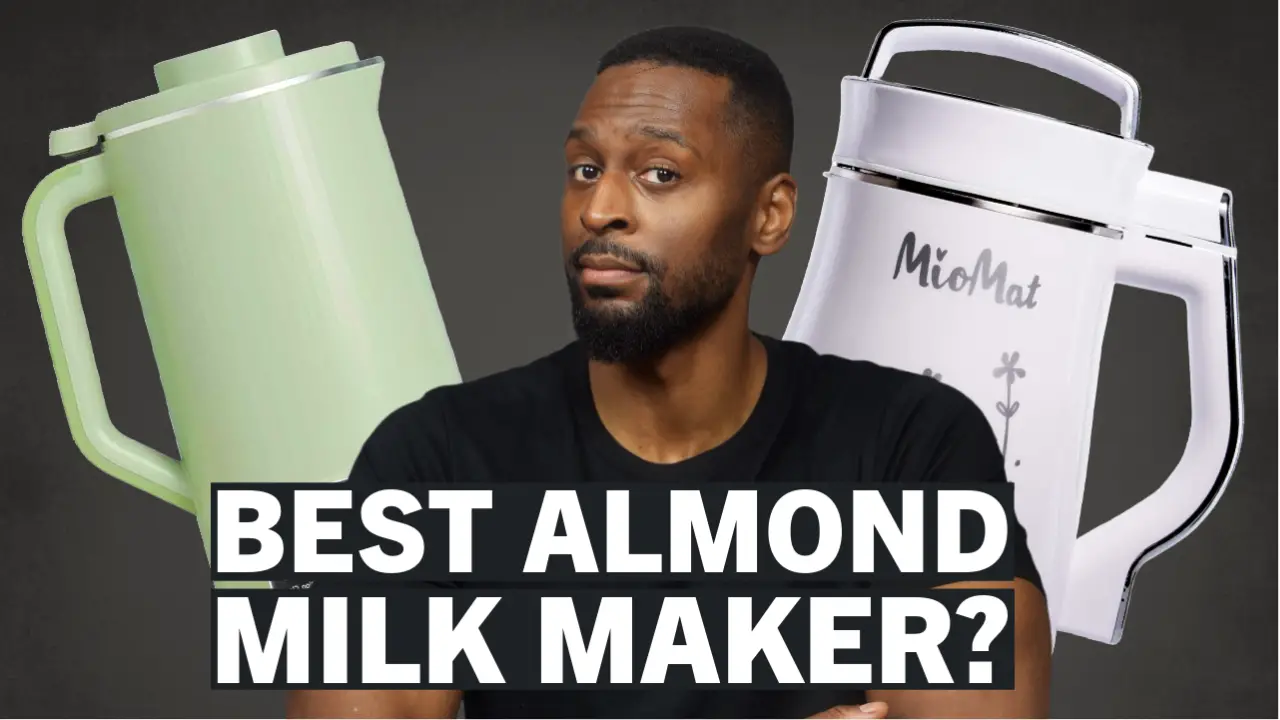 KitchenFebruary 5, 2024Best Almond Milk-Making Machines 🥛 Cheap vs Expensive?
KitchenFebruary 5, 2024Best Almond Milk-Making Machines 🥛 Cheap vs Expensive?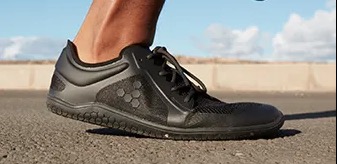 Barefoot ShoesDecember 18, 2023Can Barefoot Shoes Be Bad for You? Exploring the Potential Downsides
Barefoot ShoesDecember 18, 2023Can Barefoot Shoes Be Bad for You? Exploring the Potential Downsides
Affiliates:
This post may contain affiliate links that at no additional cost to you, the site may earn a small commission. We only recommend products we would use ourselves and all opinions expressed on this site are our own.
General Advice:
The information provided in this article is for general informational purposes only. It is not intended as a substitute for professional advice. Always consult with a qualified healthcare professional before starting any new diet, exercise program, or making changes to your health routine.
Accuracy Advice:
While we strive to provide up-to-date and accurate information, the content in this article may not reflect the most current research or medical guidelines. We encourage readers to do further research and consult with professionals for more personalized advice.
Our Recommendations:
The products and services mentioned in any of our articles are recommended based on our independent research and personal experience. We are not sponsored by any company. We aim to suggest products and services we believe are of high quality and could be beneficial to our readers.






